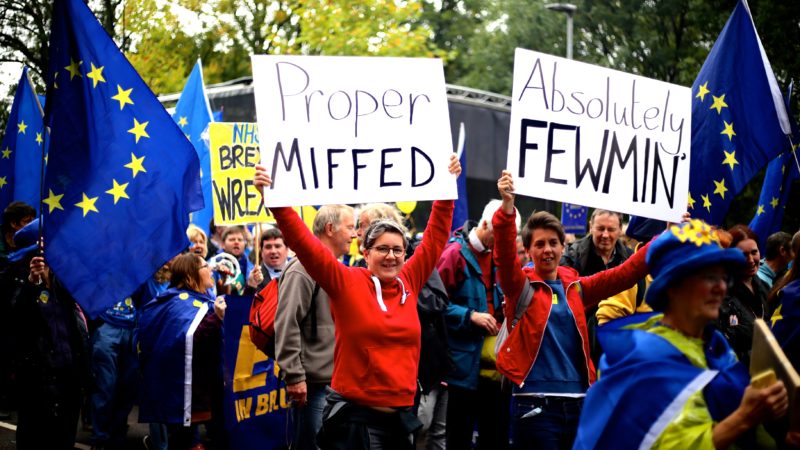There's a low bar of knowledge about Brexit - meaning Remainers must be careful in their messaging.

The last week saw significant developments on Brexit – in the Commons the EEA vote was lost, with splits in the Labour ranks going beyond the soft Brexit vs stop Brexit divide. 15 Labour MPs voted with the Tories to Leave.
On the EEA, Corbyn was right – it is not a good option. Like Best for Britain’s Eloise Todd, I do not wish to be in a half way house – taking rules but having no input. The EEA ‘solution’ is not anti-Brexit, but a formula for accepting Brexit and trying to salvage something on trade.
With 15 MPs coming out as Labours Leavers – or ‘Lexiteers’ – the party faces a re-run of the battles of the 1970s, which allowed Thatcher to win in 1979 and let the Tories to control government for 18 years. A forgotten history could be re-staged.
Remainers tend to argue a People’s Vote is a simple road to victory. Yet this is unlikely even before the 15 Labour Leave MPs voted with the Tories and declared, de facto, for Brexit. Even a small pro-Brexit faction is enough to make a popular vote difficult to win – so looking at public opinion becomes vital.
The broad picture in the electorate shows four main camps. Hard Brexit and Hard Remain who will not shift – leaving Soft Brexit and Soft Remain as the crucial groups for a winning strategy. Sadly, things have moved against Remain.
The polling shows there has been little shift against Brexit – there is no strong trend towards ‘Bregret’.
Brexiteers argue the 2016 vote was a unique appeal to the people so unchallengable. Constitutionally, it is clear there is no bar to another vote, but the idea that another Referendum is undemocratic leads Remainers to rebadge it as a “People’s Vote”.
Yet the example of Love Island – with contestants not knowing what Brexit is at all – suggests an uphill struggle. Outside the Westminster bubble most people are unaware of the Brexit debates and what the EU means. When Love Islander Hayley Hughes misheard “Trade Deals” as “Tree Deals”, she wasn’t alone in her confusion.
Equally, when Georgia asked if Brexit meant that Britons could not go to Spain, it was easy to dismiss her as speaking for the Ibiza party crowd. So what? Remainers have to start understanding what Soft Brexit and Soft Remain voters think.
Soft Brexiteers tend to think on the lines that the EU is a club – and if we stop paying the subs then there is more for the NHS, which is Theresa May’s line.
Meanwhile, Soft Remainers think the EU is a trading partner and if we stay in we have more trade. That’s the pro-EEA line.
But we accept to accept a crucial fact: most people have no real idea what Brexit really means, and think the vote in 2016 was the last word in democracy.
Any policies on Brexit must therefore be carefully couched in very clear terms – with democracy at the heart. Leave did not “respect” the 1975 vote. The key issue is the principle David Davis noted in 2013: “If a democracy cannot change its mind, it ceases to be a democracy”.
This argument is one all should agree on: if Remainers tread carefully and communicate well, we can put Brexiteers on the back foot.
Trevor Fisher is a Labour Party member and writer.
To reach hundreds of thousands of new readers we need to grow our donor base substantially.
That's why in 2024, we are seeking to generate 150 additional regular donors to support Left Foot Forward's work.
We still need another 117 people to donate to hit the target. You can help. Donate today.



